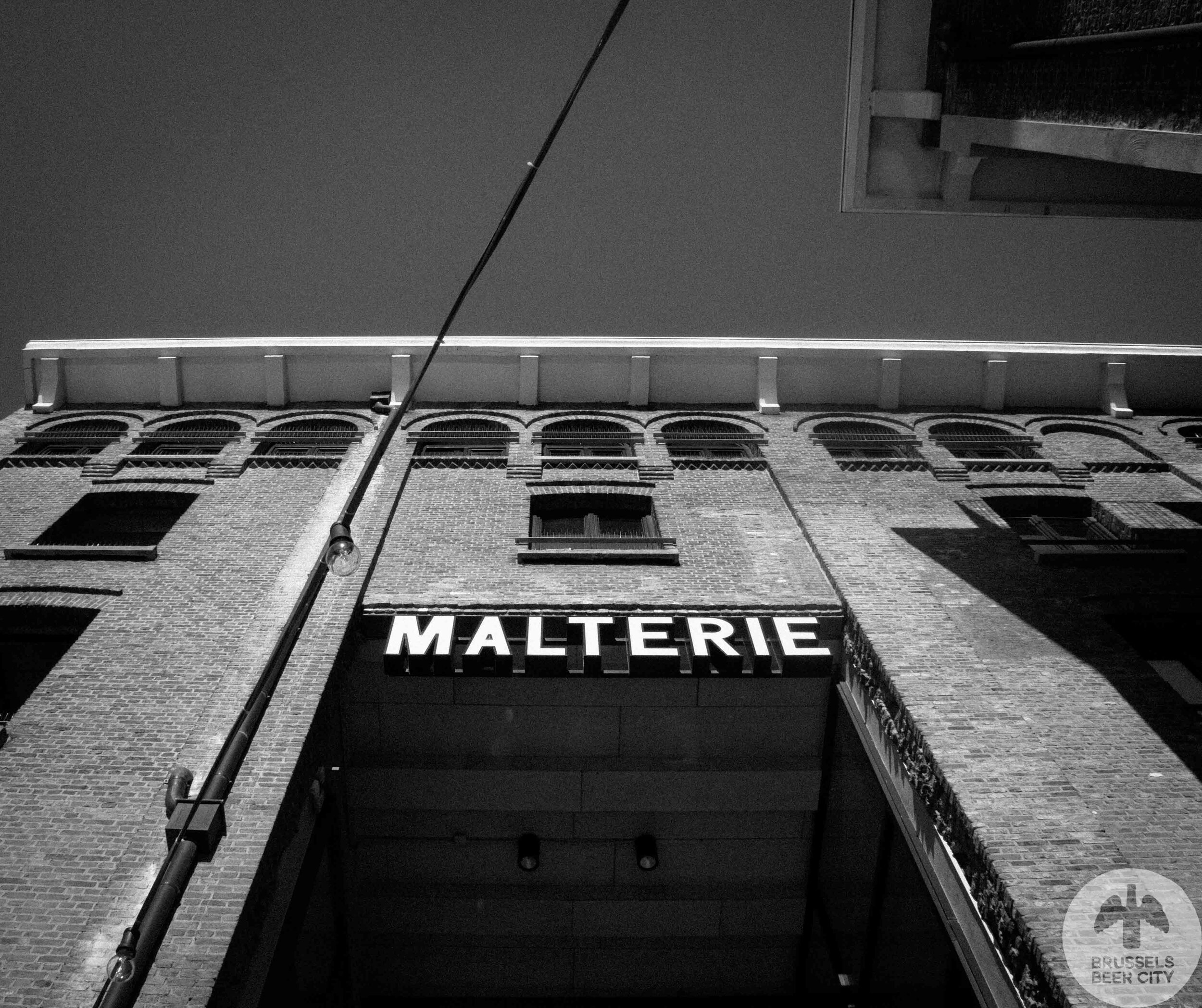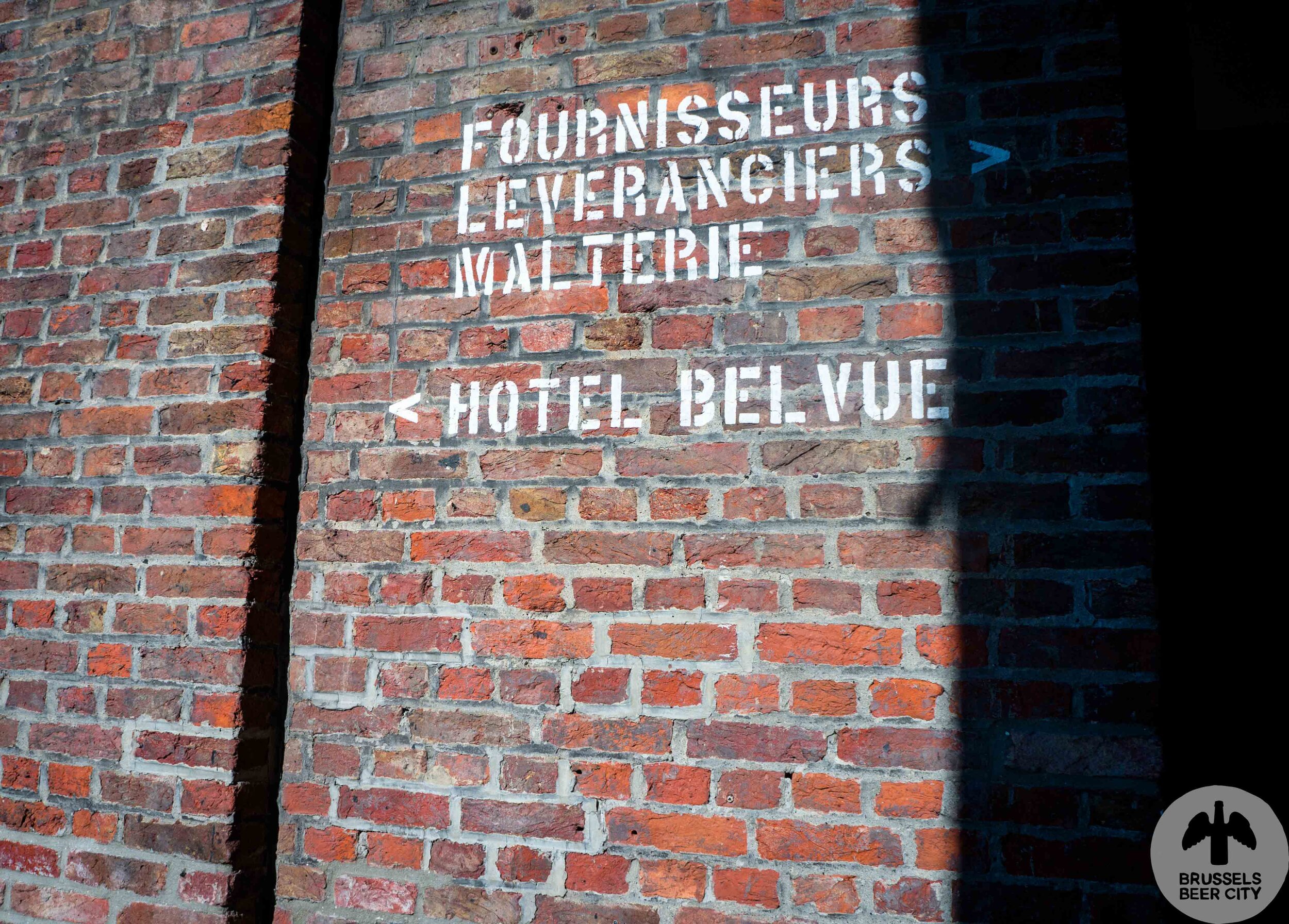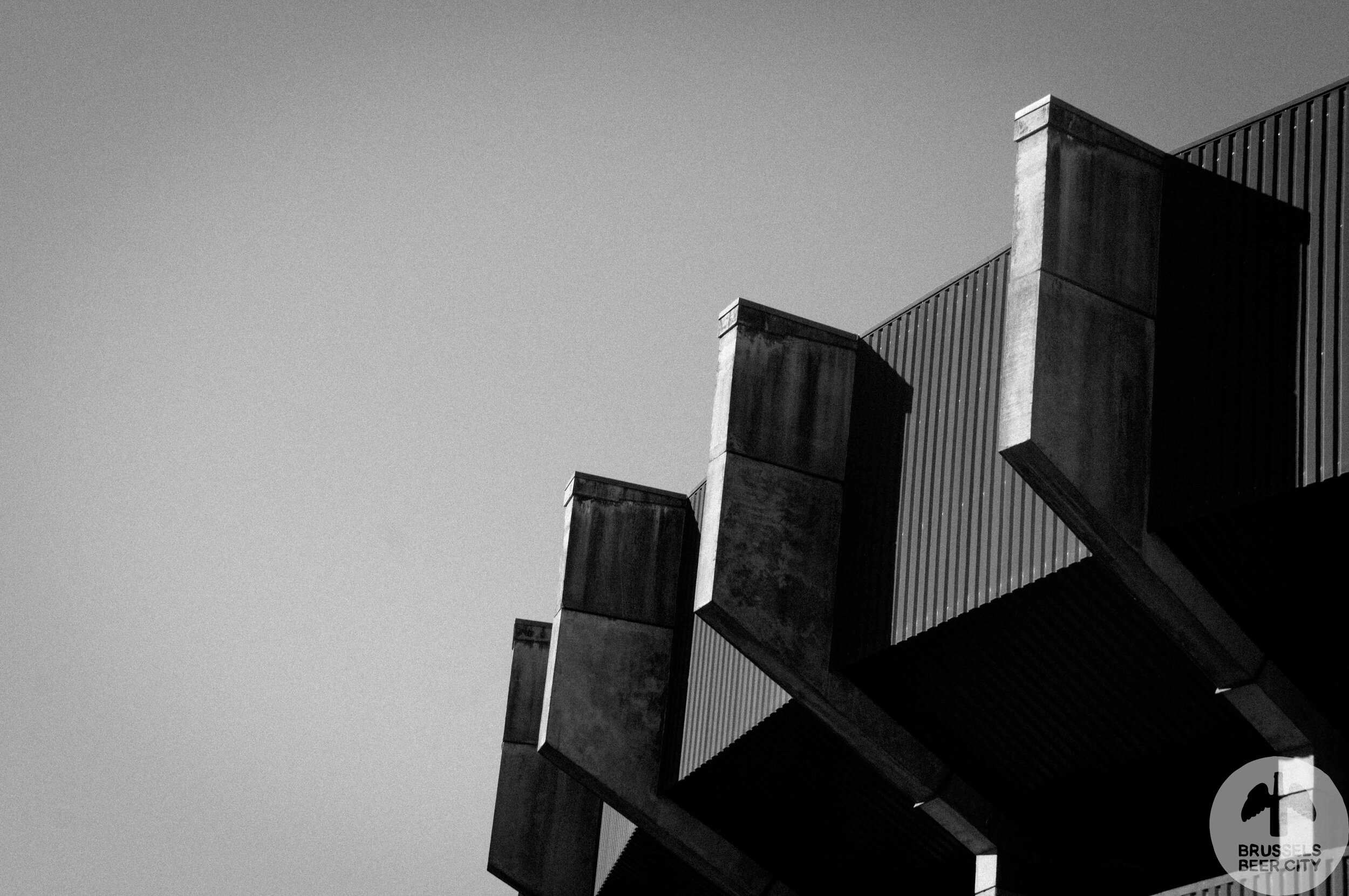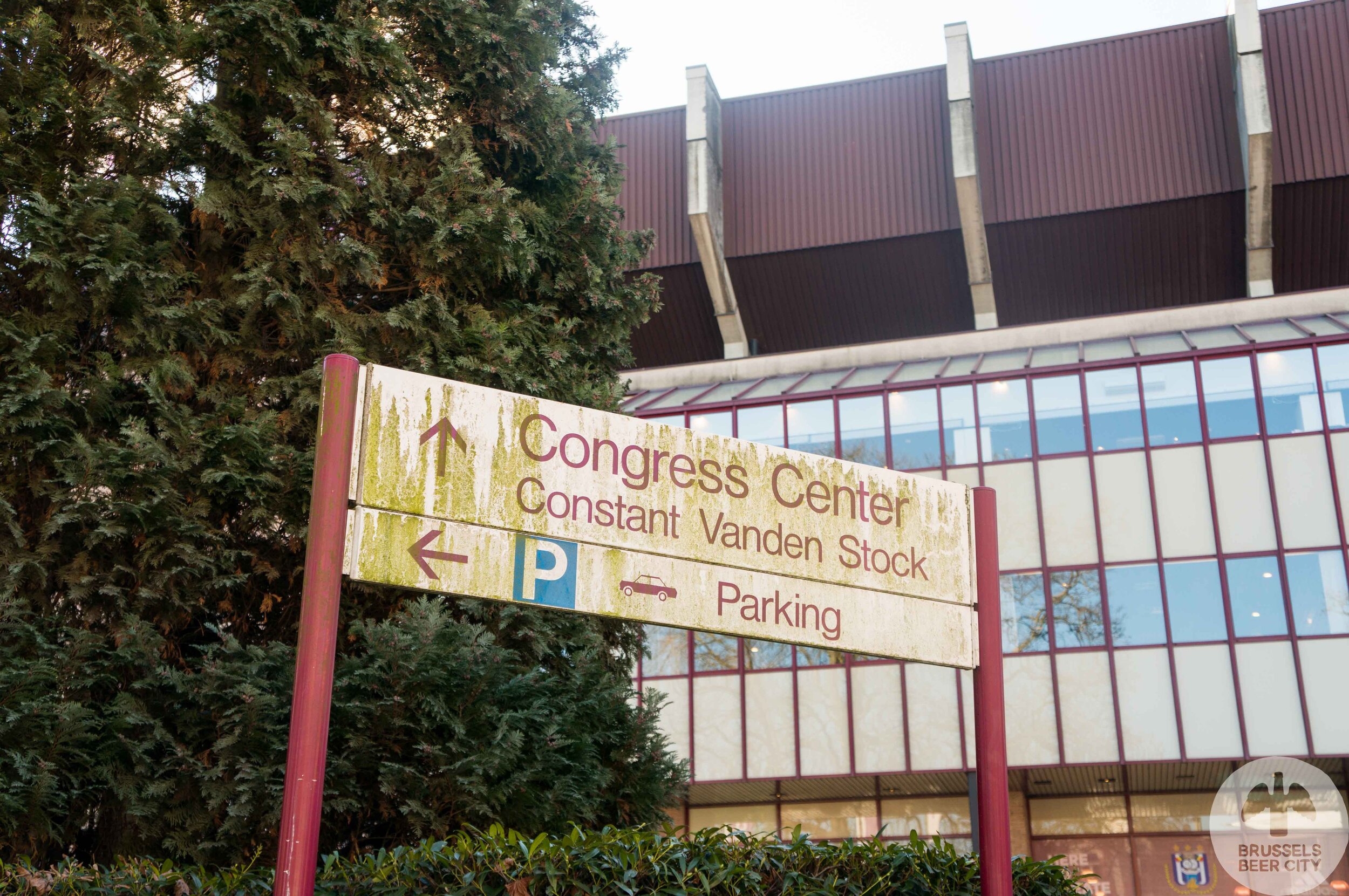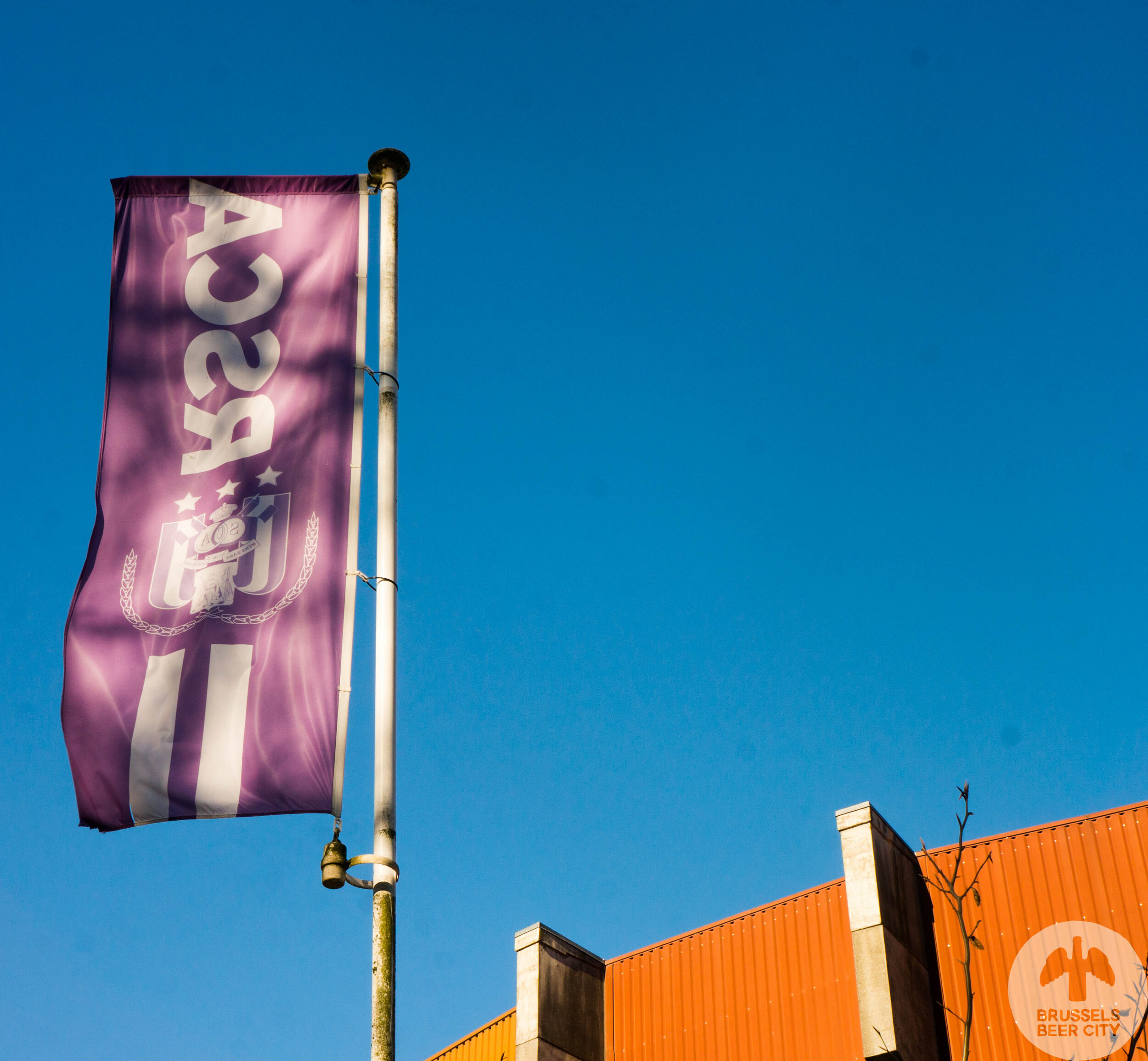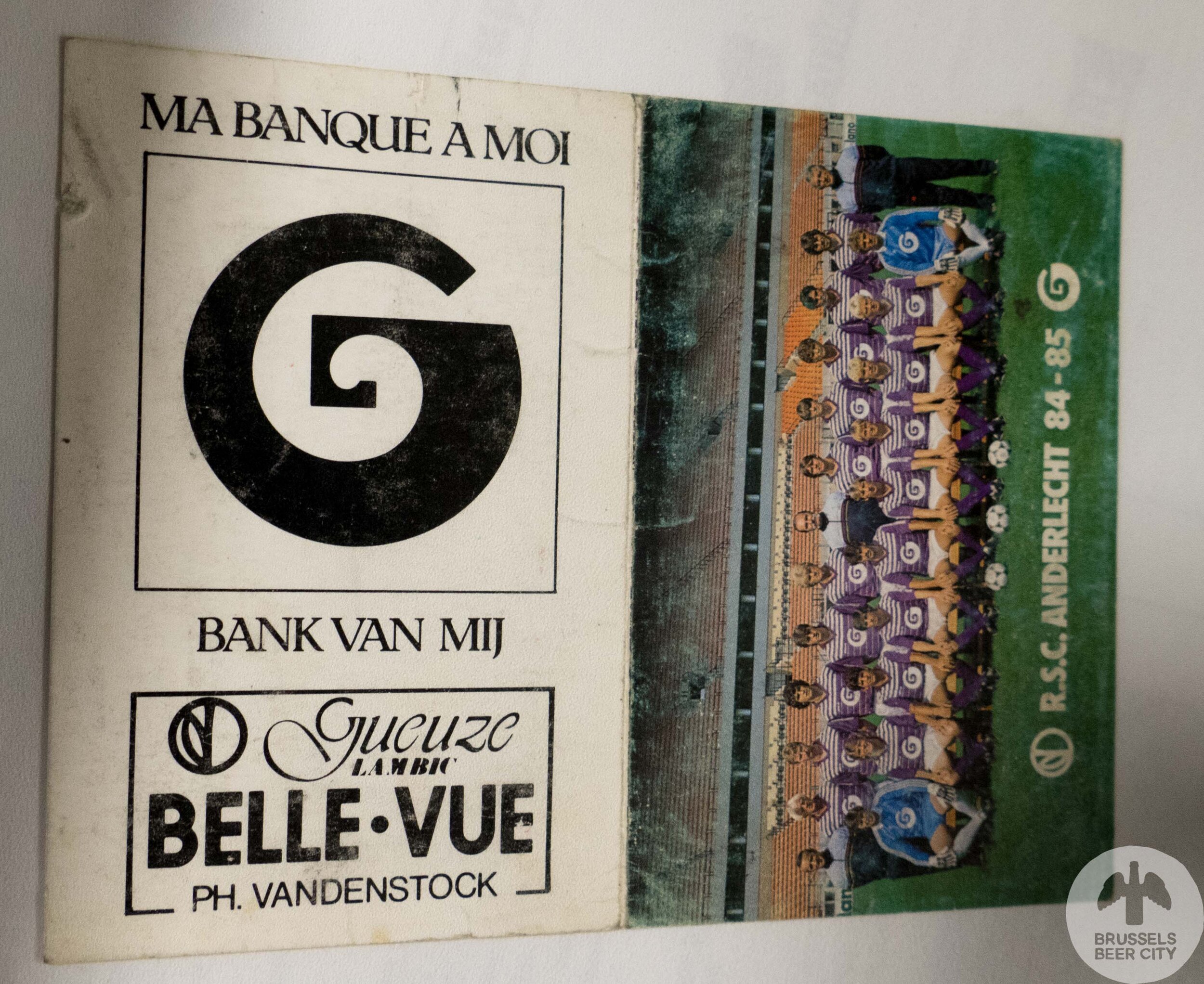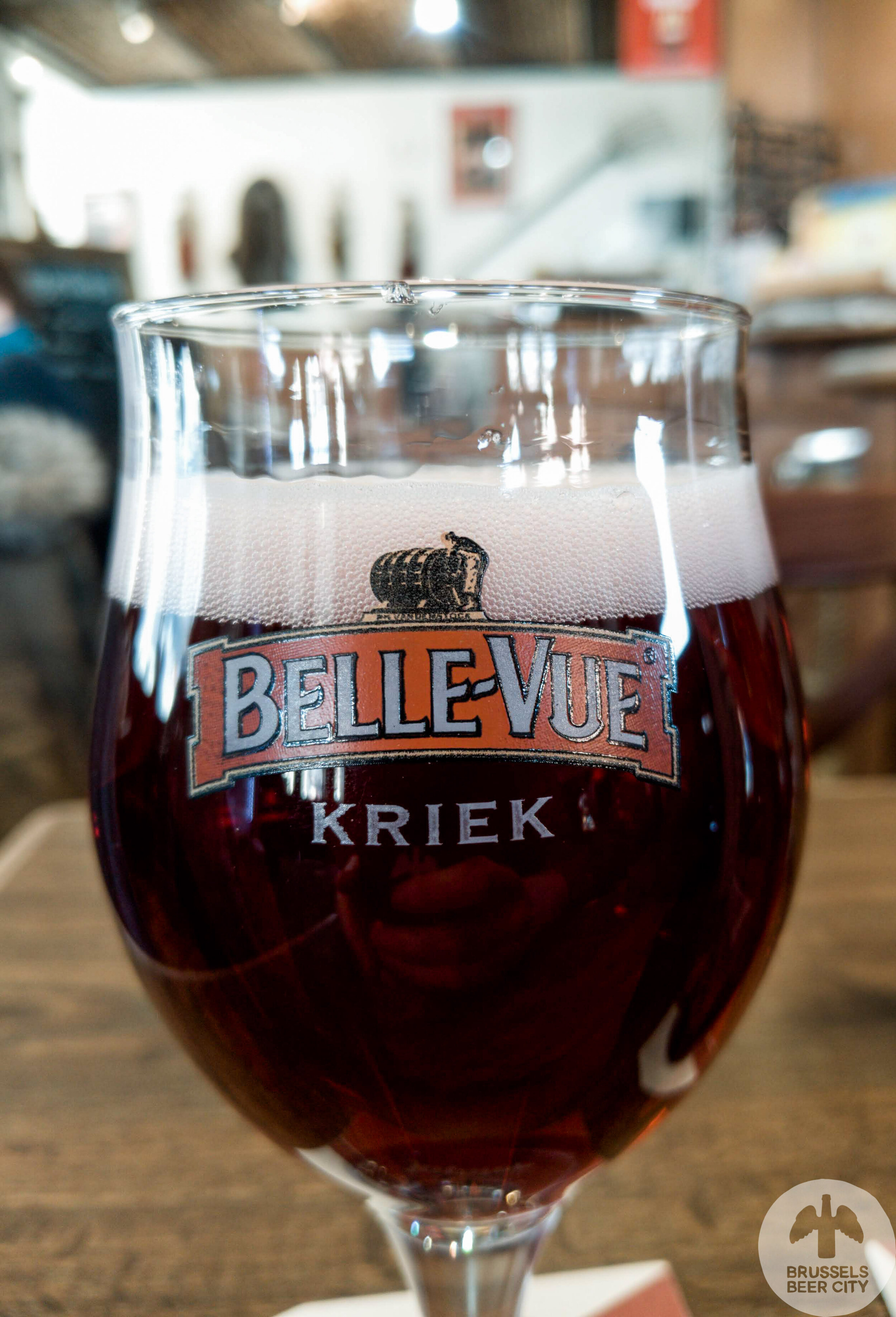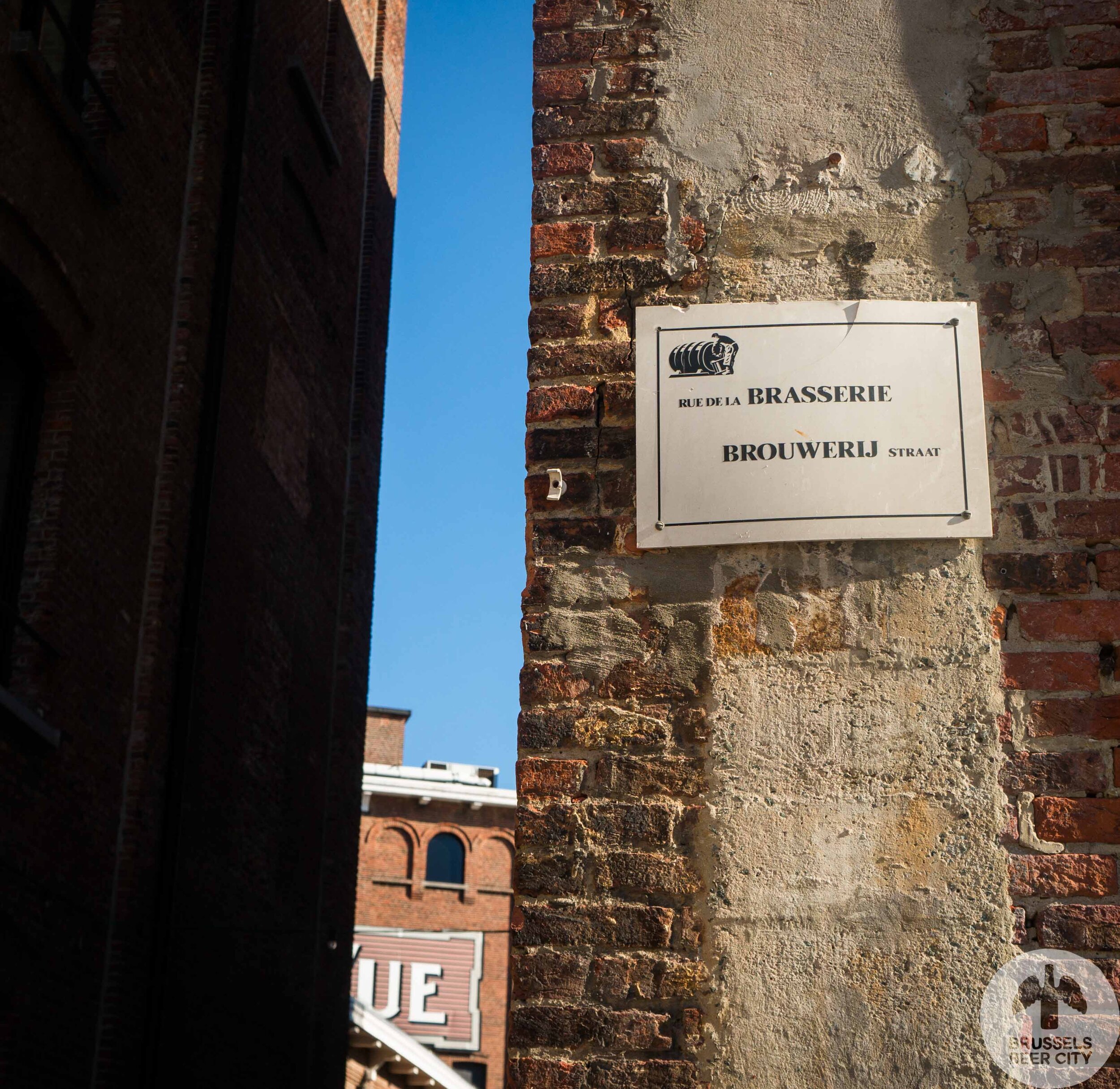Monsieur Constant // How one brewer defined beer and football in Brussels for the 20th century
Constant Vanden Stock was a 20th century Brussels titan. Voted 93rd greatest Belgian of all time in a public poll, the man defined football and brewing in the city for 50 years. As patriarch of the Belle-Vue brewery he transformed the Lambic industry, ushering in modernisation and pushing traditional Lambic culture to the brink of oblivion. As the president of Anderlecht football club, Vanden Stock was lionised as a folk hero, bringing the club glory at home and in Europe as he entertained Belgian royalty in the presidential suite of the stadium which carried his name.
The consequences of his market moves in football and beer from the 1940s through to the 1990s are still being felt today, and after he had retired from running Belle-Vue Vanden Stock sat down with Belgian journalist Hugo Camps to set down the events of his life. What came out of these conversations was a sort-of autobiography, the title of which sums up Vanden Stock’s story: One Life, Two Careers,
His life and those careers spanned seven decades, two world wars, personal tragedy, prodigious success and destructive hubris - and lots of trophies. In the rumble-tumble of Constant Vanden Stock, four dates stand out that defined his progress from café owners son to national icon - for good and for ill.
August 18, 1944
A bang at the door. German voices in the hallway. Philemon Vanden Stock is shook out of his bed at 2.30am. His name is on a list and neither he nor his son, Constant, know why. Three weeks later Philemon Vanden Stock is on the last train out of Belgium to the work camps in Germany. On September 3 1944, Brussels is liberated, but Constant can’t celebrate: “Geuze has never tasted as hard, as bitter for me, as on that day.”
Philemon died in a German camp outside two days before the end of the war. Constant Vanden Stock never forgot what happened his father. “I would make sure that the name Philemon Vanden Stock would be known in the whole country, and if I could throughout Europe,” he said to Camps in 1993.
Constant Vanden Stock was always going to be a Lambic brewer. He was born in 1914, a year after Philemon started as a Lambic blender. In 1927 Philemon bought the Café Belle-Vue on Anderlecht’s Place de la Vaillance and it was here that Constant Vanden Stock’s apprenticeship began. He was serving beers by his holy communion, and aged 14 quit school to join the family business.
Constant’s first major business decision came during wartime German occupation in the 1940s. German laws dictated breweries were licensed to brew a fluitjesbier, a 0.8% beer. Philemon refused to brew subpar beer, preferring instead to sell of what was left in Belle-Vue’s cellar. Constant suggested an alternative. “If we add a dash of three-, four-year-old gueuze to the fluitjesbier, customers will be happy,” he said. Despite his father’s vocal displeasure, business flourished.
In 1943, Philemon and his two brothers bought a nearby brewery and began brewing for themselves. Anticipating his future diversions from Lambic orthodoxy, Constant altered their beer to make it more appealing as he saw it, harbouring greater ambitions for the growth of Belle-Vue than his father. “Even as a child, I remarked that some people found gueuze too hard,” he said in 1993. So he “made it a bit softer and rounder” and broadened its appeal to new drinkers and securing the brewery’s survival through the war.
Christmas, 1969
Constant Vanden Stock has reason to smile. He has been running Belle-Vue for two decades. With the purchase of their Molenbeek rivals Brasseries Unies, Vanden Stock is now the biggest Lambic brewer in Brussels and set to expand Belle-Vue’s dominance to Belgium and the rest of Europe. It started not long after liberation in 1944.
“For anyone who looks closely enough at my forehead,” Vanden Stock said, “they can still see the imprint of the laces where the ball was sown shut.”
Belle-Vue emerged from World War II healthier than its Brussels rivals, and Vanden Stock took advantage to break with the Lambic traditions of his father. His landmark contribution was the “capsule-gueuze”. Filtered, sweetened, and packaged in 25cl bottles, capsule-gueuze pandered to the sweetening palates of Belgian drinkers. It also saved the brewery from disaster. In 1949, a heat wave ripped through Brussels, destroying three million bottles of gueuze. Belle-Vue was spared thanks to its pasteurised, standardised bottles.
The war behind him, Vanden Stock worked to “try everything to fill the emptiness that [his] father had left behind”. As the brewery grew, Vanden Stock made sure the name remained the same: Société Belle-Vue Ph. Vanden Stock. Through the 1950s and 1960s Belle-Vue picked off their ailing rivals. “Left and right we bought what was for sale,” said Vanden Stock. Demand for traditional gueuze and Lambic was collapsing, and the city’s remaining Lambic brewers had failed to modernise or win protection for traditional Lambic processes against innovations like Belle-Vue’s capsule gueuze.
In 1969 Vanden Stock saw a chance to tie-up the Brussels Lambic market. A merger between Brussels’ Brasseries Unies and Brasserie Louis et Emile Decoster had left them debt-ridden and vulnerable to takeover. Vanden Stock made his move and, purchase complete, Belle-Vue moved into Unies’ brewery in Molenbeek, which served as their headquarters for the next 20 years.
Belle-Vue secure, Vanden Stock returned to his other childhood passion: football. He had spent his childhood days playing in cobbled streets and nights curled up in bed with a football. Vanden Stock made his debut for Royal Sporting Club Anderlecht before his 19th birthday, in the Belgian second division. He stood out for his speed and his heading ability. “For anyone who looks closely enough at my forehead,” Vanden Stock said, “they can still see the imprint of the laces where the ball was sown shut.”
He won promotion with Anderlecht in 1935, but a broken leg and the lost confidence of the team’s management hastened his departure three years later. Vanden Stock swapped Anderlecht for the yellow and blue of their cross-town rivals Royale Union St. Gilloise, but the loss of his father cut short his career. “The first six years after the war I lived completely without football,” Vanden Stock said. “Not one game, not one foot inside a locker room.”
Slowly, he inched his way back; first as trainer of the Anderlecht youths, then as manager of Forestoise, and eventually the national team manager. In 1969 his boyhood club drew him inexorably back to Brussels, and he returned to Anderlecht as a board member. According to Jean-Pierre Van Roy, his erstwhile rival in Lambic brewing and then-owner of Brasserie Cantillon, there was the tantalising prospect that instead of Anderlecht he could have invested in his boyhood club across town. But, bankrolled by Belle-Vue’s success, he became Anderlecht’s president in 1971, launching an era of unrivalled success.
April 25, 1984
In the bowels of Anderlecht’s Stade Ernest Versé, Brian Clough is quiet. His team, Nottingham Forest, has just been beaten 3-0 in a Uefa Cup semi-final by Constant Vanden Stock’s Anderlecht. Clough is convinced that Anderlecht has bought off the referee. Before the game, his players claimed to have seen Anderlecht officials meeting referee Emilio Guruceta Muro’s room. A dodgy penalty against them and a disallowed last-minute goal confirmed their worst suspicions. Forest player Garry Birtles said later: “It was embarrassing. Your natural thought is not that it was a bent referee, but we knew we’d been done.” Anderlecht’s win against Forest put them through to their second consecutive European final and capped a decade of Vanden Stock-funded success.
Constant Vanden Stock was determined to succeed in football as he had in brewing. In their purple-and-white cotton jerseys, the circle Belle-Vue logo front and centre on their chests, Anderlecht won three league titles and four domestic cups in the decade after he became president of the club in 1971. As Belle-Vue stormed Europe, Anderlecht secured their first European trophy in 1976, beating West Ham Utd. to win the European Cup Winner’s Cup and giving Vanden Stock “perhaps the most beautiful memory in my long footballing career”. Anderlecht went on to next two finals of the same competition, winning once, before they defeated Benfica in the 1983 Uefa Cup to win Vanden Stock his third European trophy. Then came Nottingham Forest a year later.
It turns out that Brian Clough was on to something. Unbeknownst to either set of players, Vanden Stock had through an intermediary, paid the referee one million Belgian francs. He would later claim that they money was given after the game, and that it was merely a loan to the referee to help him with money problems.
After the game, two men with evidence of the bribe blackmailed Vanden Stock for a decade. The payments stopped in 1996 when Roger Vanden Stock succeeded his father as Anderlecht president and discovered the blackmail scheme. He refused to pay and instead went public. Anderlecht were disgraced and banned from European football for a year, but by then Vanden Stock had secured his legacy as a club hero.
July 4, 1991
On July 4, 1991, the almost unthinkable happens. Constant Vanden Stock relinquishes control of Belle-Vue, the brewery he spent half a century building in honour of his father Philemon, to Belgian brewery Interbrew (a merger of the Artois and Piedboeuf breweries). While his son Roger celebrates the takeover as “a marriage”, for his father Constant it’s more like a wake. The elder Vanden Stock hasn’t set foot in Belle-Vue since Artois bought a minority stake in the brewery two years previously. And once this decision is confirmed, he will never go back.
Belle-Vue’s spending spree in the late 1960s and early 1970s meant that by the late-1970s the Vanden Stocks had cannibalised 80% of the Lambic market. And international expansion was next. “I still had one more debt to repay: to make the name of Philemon Vanden Stock heard abroad as well,” said Vanden Stock. France came first, with Artois as their distribution partner. Switzerland and The Netherlands followed, Belle-Vue failing only to break into Germany (“obstruction…pure protectionism”) and America (“too careful”).
By the end of the 1980s, the brewery employed 350 people, was producing roughly 311,000 hectolitres of beer a year. Belle-Vue’s size meant they had successfully avoided being a victim of industry consolidation. But dominance served to make them an attractive proposition for the country’s largest brewery, one that didn’t have Lambic in its portfolio: Artois/Interbrew.
Vanden Stock couldn’t countenance selling a stake in his brewery to Artois when the idea was first pitched to him. But his son and nephew chipped away at him, and eventually sold Artois (which by now had renamed itself Interbrew) a 43% share in September 1989. The influence of Artois – particularly new marketing techniques – soon made Vanden Stock feel “a stranger in his own enterprise.”
Belle-Vue had been exposed to an “externally infected company culture that was no longer mine,” he said, and when Artois wanted to increase their stake to 80%, and Roger and Philippe were in favour, the elder Vanden Stock put up little resistance. “[F]or me personally, it ended in a fracture between living and working,” he said. “And that remains a very strange, completely contrarian sensation…something remains still unprocessed about the whole affair.”
“What began as a beer merchant with a café, a handcart and two colleagues, finished in a small beer empire”
Roger Vanden Stock’s claims the day after the sale that Belle-Vue wouldn’t leave Brussels and they wanted to “reactivate the Brussels character of our beers” were quickly disproved. Brewing stopped in Molenbeek in 1992, and the Brussels-based brewery closed definitively soon after as operations were centralised in a new hi-tech brewery seven kilometres away in Flemish Sint-Pieters-Leeuw.
However it ended, Constant Vanden Stock was proud of his at Belle-Vue: “What began as a beer merchant with a café, a handcart and two colleagues, finished in a small beer empire.” Navigating changing consumer tastes, economic upheaval, and two world wars, his innovations at Belle-Vue transformed Lambic production, and pushed traditional Lambic culture to the brink of catastrophe while exporting Belle-Vue Kriek around Europe. With Anderlecht he fulfilled boyhood dreams of footballing glory, even if some of those have an asterisk attached to them and several of his adversaries spit at the sound of his name.
Above all, by July 1991 Vanden Stock felt that he done right by his father: “However it goes in the future, the name Philemon Vanden Stock has been posthumously honoured day after day for half a century…The bitter death of my father was not in vain.”
Postscript – February 23, 2020
It’s match day in Brussels. A slow trickle of football fans passes by Café Belle-Vue. Inside, surrounded by obsolete Lambic paraphernalia, there is an occasional flash of subtle purple or the glimpse of the Anderlecht crest. They still serve Belle-Vue Kriek here, from a fake barrel with the words Lambic, Kriek and Framboise painted in whitewash on the wood.
The Vanden Stock stranglehold on Brussels has weakened. Philemon Vanden Stock’s name is still visible above the café and the brewery, even if the family no longer owns the former and the brewery has been converted into a hotel and museum. In 2018 a Flemish entrepreneur took majority control of the football club. The grip of the Vande Stock family on Anderlecht football club was loosened definitively and permanently, when in 2019 the new owner made the decision to remove Constant Vanden Stock’s name from the stadium in favour of a new club sponsor.
Once the fans here at Café Belle Vue are finished with their smoked salmon and white wine, they will amble up the hill behind the café. There’s little to remind today’s younger match-goers of the dynasty built on the back of Brussels’ largest brewery. But, after the mauve throng files in through the chipped green turnstiles of the newly-named Lotto Park, they might enjoy a Kriek or two with their football.
Sources
Geuze & Kriek, Jef Vanden Steen, Lannoo, 2011
Constant vanden Stock: Een leven, twee carriers, Hugo Camps, Kritak/Thomas Rap, 1993
Bier en Brouwerijen te Brussel, Patricia Quintens, AMVB, 1996
A version of this article appeared in the latest (and final) edition of Belgian Beer and Food Magazine. This, and other articles from both Belgian Beer and Food and Brussels Beer City is being self-published in a short collection Brussels Beer City: Stories from Brussels’ brewing past in September 2020. More details soon!

